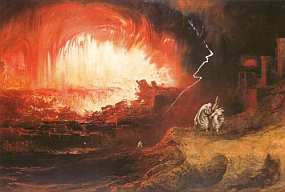I talked with fellow believers a few days back after hearing a message about forgiveness. The topic is a standard in Christian circles, but the speaker was well known, so I thought we might hear something new.
The speaker talked about the power of forgiving another person and how freeing that is to the soul. No arguments from me.
But I think that people today don’t need to hear more messages about forgiving individuals. I think many of us realize that we are dust and so are the people who oppose us. How can we be mad at other people then?
When I look around America today, I don’t see people who are mad at individuals. I see people who are mad at systems.
A system is hard to define. It’s more than just a mass of people. It’s a way of doing things. It’s the collective processes that lead to a result, often which is unintended, which in turn causes anger. And sometimes those systems possess an almost palpable malevolence.
Americans today are mad about out-of-control health care systems. I know I certainly am. My health insurance company sent me a note a couple weeks ago saying they will be raising my premium 30 percent March 1. They raised it 30 percent back in September.
Yet to whom should I direct my anger for this? At motorcyclists who don’t wear helmets and don’t have insurance so that my rates go up to compensate their lack of payment to hospitals when they sustain a costly head injury? Or should I blame doctors who order round after round of tests just to ensure they account for that one percent chance at catching a rare disease and thus avoid the inevitable malpractice lawsuit? Should I blame Congress for not removing state-imposed protections for insurance companies, thus preserving high premiums due to a lack of open, national competition?
If I don’t know at whom I should be angry, how do I know to whom I should offer my forgiveness?
Aren’t we all more likely to feel anger at entrenched systems we seem to have no ability to change? Doesn’t that define the corporate anger Americans are feeling right now toward Wall Street, Capitol Hill, and the world at large?
I brought this up with these other Christians. I asked them how we can forgive systems. And if that’s what many people are angry at, why aren’t Christian leaders addressing that anger—and the subsequent means by which we can forgive nameless, faceless systems?
The answer, I was told, is found in the classic “Serenity Prayer” of President Obama’s favorite theologian, Reinhold Niebuhr:
God grant me the serenity
to accept the things I cannot change;
courage to change the things I can;
and wisdom to know the difference.Living one day at a time;
Enjoying one moment at a time;
Accepting hardships as the pathway to peace;
Taking, as He did, this sinful world
as it is, not as I would have it;
Trusting that He will make all things right
if I surrender to His Will;
That I may be reasonably happy in this life
and supremely happy with Him
Forever in the next.
Amen.
I want to focus primarily on the first section of that prayer.
My issue with American Christianity today is that you and I have somehow taken that idea of acceptance and “gigantified” the bucket containing “the things I cannot change.” In short, our “wisdom to know the difference” between the alterable and inalterable is hopelessly broken.
I’ve had some very sad conversations with young, 5-point Calvinists in the last few years. I’ve never met people so resigned to “fate.” Their concept of God’s sovereignty has gone so far off the deep end that they see no reason to ever wrestle in prayer for anything that seems unchangeable. In truth, they are nothing more than nihilists. I have no idea what they must think of Abraham’s pleading before God in Genesis 18 for the sake of Sodom. They resign themselves to think that God has set the top in motion and nothing can be done to alter its course. They are like the unbelieving leaders in John who asked,
“Is this your son, who you say was born blind? How then does he now see?”
—John 9:19b
How indeed.
But it’s not only the young Calvinists who seemed resigned that nothing can be done. It’s us other Christians too involved in our own lives to lift a finger to make a difference. Our inaction in the face of evil systems will cry out against us come Judgment Day because we loved our own lives too much to become martyrs for some “unchangeable” cause.
Folks, where is the Christian battle?
For we do not wrestle against flesh and blood, but against the rulers, against the authorities, against the cosmic powers over this present darkness, against the spiritual forces of evil in the heavenly places.
—Ephesians 6:12
Look, you and I can’t change our chronological age, our ancestry, the era into which we were born, and a few things like that. But nearly everything else is up for grabs. Ours is not a calling to serenity but to go out there and fight systems, no matter how innocuous they may seem.
And we can do it too:
For the weapons of our warfare are not of the flesh but have divine power to destroy strongholds.
—2 Corinthians 10:4
So how is it that so many Christians just roll over and play dead?
If Christians in Rome didn’t fight the prevailing evil Roman system of leaving the old, infirm, and sick to die, how would the Church have grown so rapidly?
If Martin Luther didn’t pound his worthy complaint to the door of the monolithic Roman Catholic Church , where would the Church universal be today?
, where would the Church universal be today?
If William Wilberforce rolled over and relented to the seemingly unchangeable slave trade in England, where would our world be today?
If Martin Luther King Jr. didn’t stand up for the cause of civil rights in the face of catcalls, baseball bats, and the ever-present threat of a noose on a tree limb, where would American society be today?
And that list can go on and on.
When I hear Christians telling me nothing can be done, the simple answer is that they don’t want to be bothered. They won’t put in the time, energy, prayer, and faith to help make change happen. They don’t want their status and incomes threatened by standing up against tough, systemic opponents.
Increasingly, resignation seems to be the state of much of the Church in America. Doesn’t matter that the Bible repeatedly says that all things are possible with God. We keep thinking that some things are beyond His ability to change.
As for me, I contend that such a god is not the God of the Bible.
Christian, the Enemy is at the gate. Don’t resign your commission by resigning yourself to the way things are. Stand up and make a difference.

 On Monday, I wrote concerning
On Monday, I wrote concerning  The persecuted church in China has been praying for years that the Church in the United States would taste some real persecution, not the faux Westernized version that consists of “The town council won’t let us put up a nativity scene in the square!” and the inevitable response of “We’ll sue!” I suspect the Chinese will get those prayers answered in the affrimative.
The persecuted church in China has been praying for years that the Church in the United States would taste some real persecution, not the faux Westernized version that consists of “The town council won’t let us put up a nativity scene in the square!” and the inevitable response of “We’ll sue!” I suspect the Chinese will get those prayers answered in the affrimative.